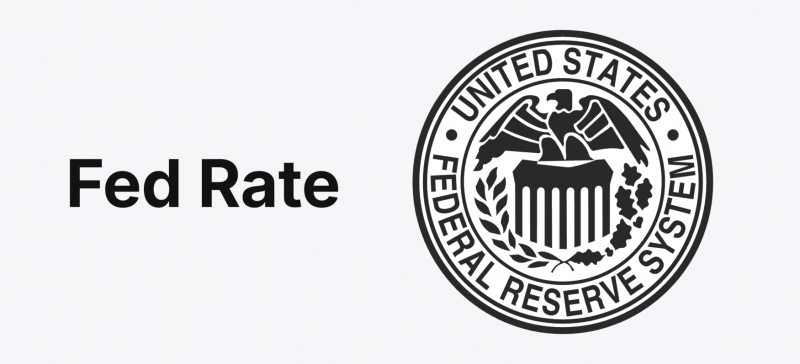Today’s crypto industry is the object of large-scale cryptocurrency investments, which have become a good stimulus for developing different areas of blockchain technology. Crypto hedge funds were invented to expand investment flows into certain specific areas of the crypto sphere to provide a sufficient level of funding, which in all their diversity, have become a new form of investing virtual assets into promising and ambitious crypto projects. But what are crypto hedge funds, and how do they work?
This article will shed some light on crypto hedge funds and how they work. In addition, you will learn about the peculiarities of legal regulation of crypto hedge funds and their positive and negative sides. Ultimately, we will provide a list of the largest hedge funds in the market today.
Key Takeaways
- A crypto hedge fund is an organization authorized to manage the investment activities of both private and institutional investors.
- Most crypto hedge funds are regulated by the SEC, the main US financial regulator.
- Crypto hedge funds can offer high returns and professional asset management, but at the same time they charge high commissions and carry certain risks.
What are Crypto Hedge Funds and What is Their Function?
The establishment of a crypto fund allows for investment activities related to crypto and digital assets. Although the cryptocurrency market is still in its infancy, the number of asset managers offering hedge fund investing in crypto assets and companies using blockchain or distributed ledger technology is growing.
Crypto funds usually refer to venture capital or cryptocurrency hedge funds, although exchange-traded funds (ETFs) or private equity funds exist. A crypto hedge fund is directed digital money capital available to investors for replication. It is a liaison between the trader (who decided to work to set up a crypto fund) and the investors (those who invest in the fund).
There are different types of crypto funds to meet the needs of traders and investors to grow their capital. Such funds act as a relatively new form of investment fund due to increasing awareness for and interest in cryptocurrencies. Investors interested in volatile but often high returns on cryptocurrencies but not interested in the high risk and process of trading in a cryptocurrency exchange can invest in these funds. Such funds either deal exclusively in cryptocurrencies or manage a combination of cryptocurrencies and other asset classes. This is a relatively new segment of the investment industry that is rapidly gaining popularity.
Cryptocurrency funds are generally similar to traditional hedge funds, such as hedge funds, but the main difference is that they work with virtual assets. The term “cryptocurrency hedge fund” refers to an investment portfolio that includes a variety of virtual assets, with one or more people managing such a portfolio. Investors can then join such funds to share profits as the fund’s value grows. It is worth noting that less than half of these institutions operate as venture capital funds, and the rest are typically structured as hedge funds.
Crypto hedge funds today use two approaches to investment activity: discretionary or systematic. In the first approach, the fund manager makes all significant investment decisions. On the other hand, the systematic approach relies on computer transaction processing models. The latter method is recognized as less risky than the former because the entire process is automated, but, statistically speaking, the discretionary method maintains most funds through its rewarding efficiency each year.
The most complex and controversial aspect of a crypto hedge fund will ultimately determine the success or failure of the entire fund. On the one hand, the fund needs to show the maximum income to get the maximum profit. The fund’s return on investment will depend on the yield of the fund itself. But as everyone knows, the higher the expected return, the higher the risk. Based on this, such funds use quite a conservative policy of investing clients’ money. About 80% of private and institutional investors’ funds are invested in mining cryptocurrencies, providing a relatively small but stable income. The remaining 20% is used for active speculation on purchasing and selling various cryptocurrencies.
Such an investment structure is because even in the case of unsuccessful play on the rates and a possible substantial drop in the price of the cryptocurrencies purchased by the fund, investors will still receive some, albeit small, income from investing in mining. In this case, though such a structure does not imply a vast revenue initially, the fund’s bankruptcy probability becomes minimal. Under-received income can be compensated because hedge funds, buying mining, can provide an additional fixed income hidden from investors. A small portion of the revenue goes to the fund’s management company as a commission, which implies any service, such as an affiliate fee for attracting clients.
This is the uniqueness of a cryptocurrency hedge fund. Usually, those assets that bring some guaranteed return yield 3-5% per annum in currency. As a rule, these are bonds or other fixed-income instruments. But the income from mining is an order of magnitude higher than that from investing in bonds. Plus, there is the possibility of obtaining an additional fixed fee, not initially included in the direct costs of investors.
Cryptocurrency hedge funds are designed to provide full control of investment capital to maximize profits even in the most volatile crypto market.
Peculiarities of Cryptocurrency Hedge Funds Regulation
To understand the peculiarities of the legal issues of regulating crypto hedge funds, let us look at the practices of one of the most prominent U.S. regulators, the SEC. Regulation of hedge funds in the U.S., including digital asset funds, takes place at two levels: (i) at the issuer level and (ii) at the adviser level. At the issuer level, the SEC and individual states regulate investments in the fund by the fund’s U.S. investors. At the adviser level, managers are regulated by either the SEC or the CFTC or neither, depending on whether the portfolio assets relate to securities or commodities.
The structure of digital asset hedge funds is very similar to that of hedge funds issued at the issuer level. In the U.S., securities law and state law govern all funds investments based on individual investors’ domicile. The location and jurisdiction of the fund or fund managers are irrelevant, and the target classification of the fund’s portfolio assets is also regulated by law. Digital asset funds are considered private securities offerings under U.S. law. Most issues related to the registration exemption for digital asset funds are handled at the adviser level, which determines jurisdiction based on the portfolio asset classification. Disclosure issues are addressed at the issuer level, in offering documents, and in statements made during the capital raising process.
In the U.S., private crypto hedge fund managers at the adviser level are regulated under the Investment Advisers Act (SEC) and the Commodity Exchange Commission Act (CFTC), which classify portfolio assets as securities or commodities. Investment advisers are regulated under the Investment Advisers Act of 1940, which also governs advisers who provide securities advice. This Act provides registration and anti-fraud provisions for both registered and exempt crypto hedge fund managers, although some may be exempt from registration. Securities regulation at the issuer level is governed by the Securities Act and the Investment Company Act.
Pooled investment fund funds are provided “advice” rather than individual investors, as is the case with advisers of separately managed non-fund accounts. Registration at the adviser level with the SEC would obligate digital asset funds to report, maintain records and undergo SEC audits. More importantly, registration would mean applying the Investment Advisers Act trusteeship rule fully, which is a major obstacle to compliance when trading liquid digital tokens.
Even digital asset funds that trade a minimal amount of securities must comply with investment adviser registration requirements. The SEC’s advisory rules do not provide a de minimum exemption for the inclusion of small amounts of securities assets in a portfolio, unlike the CFTC’s registration and exemption.
Advantages and Disadvantages of Crypto Hedge Funds
Cryptocurrency hedge funds, being a new and essential player in the crypto sphere, offer investors a number of undeniable advantages, which become a solid foundation for the expansion of investment activities and the emergence of new cooperation. However, despite this, crypto hedge funds also have several disadvantages, which we will also discuss below.
Advantages of Crypto Hedge Funds
Let’s start with the positives that cryptocurrency hedge organizations have.
1. Professional Asset Management
Initially, hedge funds focused on managing investments to hedge market risks. Gradually, funds became increasingly aggressive, and fund managers favored high-risk, high-return strategies. Today, hedge funds have a higher risk profile than other popular funds, such as index funds. Consequently, assets in such funds are managed by highly qualified professional fund managers, which is especially important in crypto, where inexperienced investors can fall victim to fraud. As a rule, people managing crypto hedge funds have an impressive knowledge of risk insurance and the crypto industry, which is an advantage when dealing with different crypto products.
2. High Yield Potential
Crypto hedge funds make money on the growth of crypto assets’ prices, but their shares are not sold on the exchange. Moreover, traditional hedge funds tend to pursue active trading strategies in which they buy and sell cryptocurrencies in short time periods to profit from fluctuations in their rates. Since the crypto market is highly nourished, funds invested by crypto funds with active management (leveraged trading, arbitrage, and algorithmic trading) and passive management yield outstanding returns.
3. Diversification
Traditional funds, such as mutual funds, are one of the most popular options for investing money, which on the other hand is a barrier, because many investors simply forget about such an important element as diversification. Crypto hedge funds are a great alternative which will help diversify your investment activities and try something new, especially for those who like high risk products.
Disadvantages of Crypto Hedge Funds
Now, it’s time to consider the disadvantages of cryptocurrency hedge funds.
1. High Commissions
Typically, crypto hedge funds charge investors a fee for management and returns. Annual management fees often range from 1% to 4% of a fund’s net worth, although funds most often charge 2%. Income fees are usually 20% of annual results, although the percentage can be as high as 10% or 50%. This amount may be affected by the previous year’s loss offset. The fund will recoup previous periods’ losses and only then distribute profits. With this in mind, caution should be exercised when choosing a fund for money management purposes.
2. Limitations
Most often, shares of regulated crypto hedge funds are available only to qualified investors, and the entry threshold starts from several hundred thousand dollars. Thus, American hedge funds can work only with qualified investors with a capital of $5 million and more and funds in offshore jurisdictions – with investors with a capital of $100,000 and more. Unlike ETFs, hedge funds are much less regulated. They can invest in virtually any risky asset, including cryptocurrency assets.
3. Riskiness
The nature of cryptocurrency assets and everything associated with them is risky in nature, largely due to their extreme volatility. It follows that investment activities related to the purchase/sale of digital coins can both bring a large income and zero out the available capital. In a cryptocurrency hedge fund management, such risk is increased due to an incorrectly chosen strategy.
Top Largest Cryptocurrency Hedge Funds on the Market
Along with the development of crypto technology, the hedge fund industry is also rapidly evolving, opening up new opportunities for managing private or institutional capital. Let’s look at some top crypto hedge funds on the market today.
Galaxy Digital
Galaxy Digital, launched in New York in 2018 by former Goldman Sachs partner Michael Novogratz, is another $100 million crypto hedge fund. In addition to investing in cryptocurrency, Galaxy Digital has also invested in about 20 cryptocurrency projects, including BlockFi, Ripple, and Bitstamp. As with the other funds on this list, these ventures were made possible by investments from other crypto supporters. That’s because when Galaxy Digital launched in January 2018, it not only had $400 million of Novogratz equity, but also raised another $200 million by listing the company on the Canadian TSX exchange.
Pantera Capital
It is an American hedge fund investing exclusively in cryptocurrencies and blockchain technology. In 2013 the company launched the first cryptocurrency fund in the U.S. when Bitcoin was worth $65. Pantera Capital has 210 venture capital and early-stage token investments under its belt. In more than half of them, it was a lead investor. The company currently has $4.5 billion under management. Pantera Capital is also a major partner in Bakkt, the cryptocurrency trading exchange recently created by the Intercontinental Exchange, which owns the New York Stock Exchange.
Polychain Capital
Polychain Capital is a San Francisco-based venture capital firm that runs a cryptocurrency hedge fund of actively managed blockchain digital assets. Polychain Capital is on the cutting edge of cryptocurrency investing, working with prominent venture capital firms such as Andreessen Horowitz, for example, and betting on companies that can shape the future of blockchain. According to Securities and Exchange Commission documents, Polychain’s assets under management exceeded $1 billion for the first time this year.
Andreessen Horowitz
Andreessen Horowitz (a16z) is a crypto hedge fund that invests in various projects. It was founded in 2009 by Mark Andreessen and Ben Horowitz. It is headquartered in Menlo Park, California. The company is allegedly registered in the United States. The fund invests in startups and various emerging mobile, e-commerce games, social, educational projects, and IT projects.
On May 25, 2022, Andreessen Horowitz, one of the world’s largest venture capital firms, announced that it has raised $4.5 billion in its largest venture capital fund to invest in cryptocurrency and Web3 startups. In the new fund, $1.5 billion will be used for seed investments, while the remaining funds will be used for venture capital investments. The fund will raise the company’s total cryptocurrency investment to $7.6 billion.
Multicoin Capital
Multicoin Capital, founded in 2017, is one of the leading investment organizations in the cryptocurrency industry. The company is known for its industry expertise and unorthodox investment style, which is based on a scientific approach, proper research, and analytics.
Multicoin Capital has been instrumental in some of the most significant cryptocurrency success stories. The company works hard to maximize the return on its investments, identifies promising new projects, and anticipates disruptive innovations that impact open markets.
Conclusion
Thanks to the development of the crypto hedge fund industry, it becomes easier for both private and institutional investors to manage their capital with the ability to diversify their investment activities. With all the advantages of classic funds, but with much more opportunities, crypto hedge funds will be a great tool for working with crypto assets.








